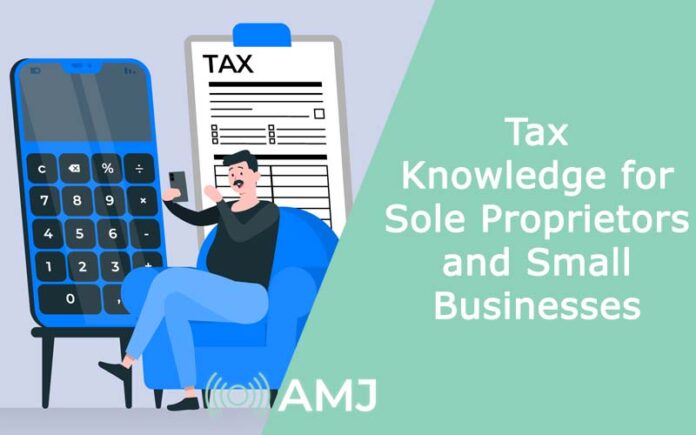Managing a small business can offer a range of prospects and challenges. It is critical to possess a comprehensive understanding of the various tax deductions that are available to small business proprietors. Individuals can maximize their savings and effectively reduce their tax liability by taking advantage of these deductions. Nevertheless, in their pursuit to maximize tax savings and guarantee the precision of their tax returns, freelancers often confront challenges. This article will shed light on the difficulties faced by freelancers and analyze significant tax deductions that are relevant to owners of small businesses and 1099 Doordash workers.
One of the most significant challenges faced by independent contractors is the precise computation of taxes. As opposed to traditional employees, freelancers are obligated to personally compute and remit their tax responsibilities. This may seem like an overwhelming endeavor, especially for individuals who are inexperienced in the realm of self-employment. By utilizing an online 1099 tax calculator designed specifically for freelancers or self-employed individuals, this process can be streamlined for freelancers. These tools aid independent contractors in the computation of their tax obligations by utilizing data such as income, expenses, and other relevant information. By utilizing these calculators, freelancers can guarantee that they have set aside the necessary amount of money to fulfill their tax obligations.
Freelancers must additionally consider the implementation of approximated tax payments as a critical component. Self-employed individuals who project an annual tax liability of $1,000 or more to the Internal Revenue Service (IRS) are required to provide estimated quarterly tax payments. Self-employed individuals are eligible to receive these reimbursements in order to offset the taxes they have paid, which encompass Social Security and Medicare contributions. They encompass income tax as well. Freelancers who prepare these estimated tax payments can avoid penalties and interest charges associated with tax underpayment.
From this point forward, we shall examine several tax deductions that are critical information for small business owners, including freelancers:
- If a portion of your domicile is used exclusively for your business, you might qualify for a home office deduction. This provision allows you to deduct a proportion of the costs associated with your home office, including utilities, insurance, rent or mortgage interest, and other such expenditures. For this deduction to be applicable, your home office must serve as either your principal place of business operations or a venue for frequent client or customer meetings.
- Expenses Related to Operations: As the proprietor of a small business, an individual possesses the eligibility to deduct an extensive range of operational expenses. Miscellaneous business-related expenses, including travel, advertising, office supplies, equipment, and software, are included in the aforementioned components. It is critical that you maintain detailed records of these expenditures in order to guarantee your eligibility for deduction.
- Self-Employment Tax Deduction: Freelancers have a responsibility to make contributions towards Social Security and Medicare taxes, acting as both the employer and employee representatives. Conversely, the deduction of the employer portion of these taxes as a business expense will result in a reduction of your overall tax obligation.
- Health Insurance Premium Deductibility: Individuals who are self-employed and are responsible for the total cost of their health insurance premiums may meet the criteria to deduct these premiums as a business expense. By claiming this deduction, you can significantly reduce your taxable income and save money.
- Retirement Contributions Small business proprietors, including independent contractors, are authorized to contribute to Solo 401(k)s, Simplified Employee Pension (SEP) IRAs, and SIMPLE IRAs, among others. One can reduce their present tax obligation and accumulate funds for retirement by making contributions that are tax deductible.
- Expenditures on Education and Training A tax deduction may be available for investments in continuing education or training that increase one’s knowledge and expertise in a specific field. This deduction is applicable to educational resources and seminars, conferences, and the like that are directly related to your business.
- Business Mileage: Deductible expenditures for legitimate mileage or travel-related costs accrued while operating a vehicle for professional objectives. It is imperative that you uphold accurate documentation of your business mileage in order to qualify for this deduction.
Although the subsequent tax deductions are commonplace, it is crucial that you consult with a tax professional or accountant to ensure that you are fully utilizing all available deductions. Personalized guidance, contingent on the unique circumstances of your business, can be provided by them to aid in navigating the complexities of the tax code.
Small business owners and self-employed individuals in general should be aware of the multitude of tax deductions available to them. By utilizing resources such as self-employed tax calculators and freelance tax calculators, independent contractors can efficiently calculate their tax responsibilities and submit estimated tax payments on time. Additionally, to significantly reduce tax obligations and increase savings, it is vital to understand and maximize deductions for self-employment and home office expenses, health insurance premiums, retirement contributions, education and training costs, and business mileage. Consult a tax professional to ensure that you are abiding by all applicable tax regulations and maximizing your available deductions.












![Index of Money Heist [Season 1, 2, 3 & 4 – All Episodes, Cast and Plot] Index of Money Heist](https://www.asiamediajournal.com/wp-content/uploads/2021/05/Index-of-Money-Heist-3-100x70.jpg)